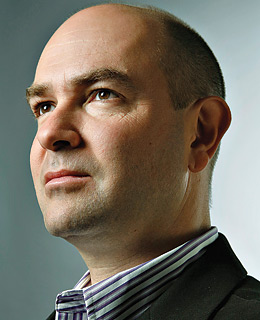
Chris Anderson
All writers are in search of the Big Idea. A Big Idea has to matter. But you can have only one of them. Your Big Idea can't be that there are, say, 89 Rules of Power. E=mc(2) was, technically speaking, a Big Idea. But not really, because the best Big Ideas are also transparent. Truly Big Ideas are the rarest of phenomena, and when I first came upon Chris Anderson's The Long Tail last year, I knew this was one.
Born in 1961, Anderson became a physicist and conducted research at Los Alamos National Laboratories in New Mexico. As editor in chief of Wired, he described the idea of The Long Tail in a 2004 article; the book came out in 2006.
Here is what the idea says: Many of us see the same movies and read the same books because the bookstore can store only so many books and the movie theater can play only so many movies. There isn't enough space to give us exactly what we want. So we all agree on something we kind of want. But what happens when the digital age comes along, allowing the bookstore to store all the books in the world? Now, it doesn't sell 1,000 copies of one book that we all kind of want; it sells one copy of 1,000 books each of us really wants.
Five sentences to explain something that, if you think about Amazon and Netflix and iTunes, will make you see the world a different way. That's a Truly Big Idea.
Gladwell is the author of The Tipping Point and Blink